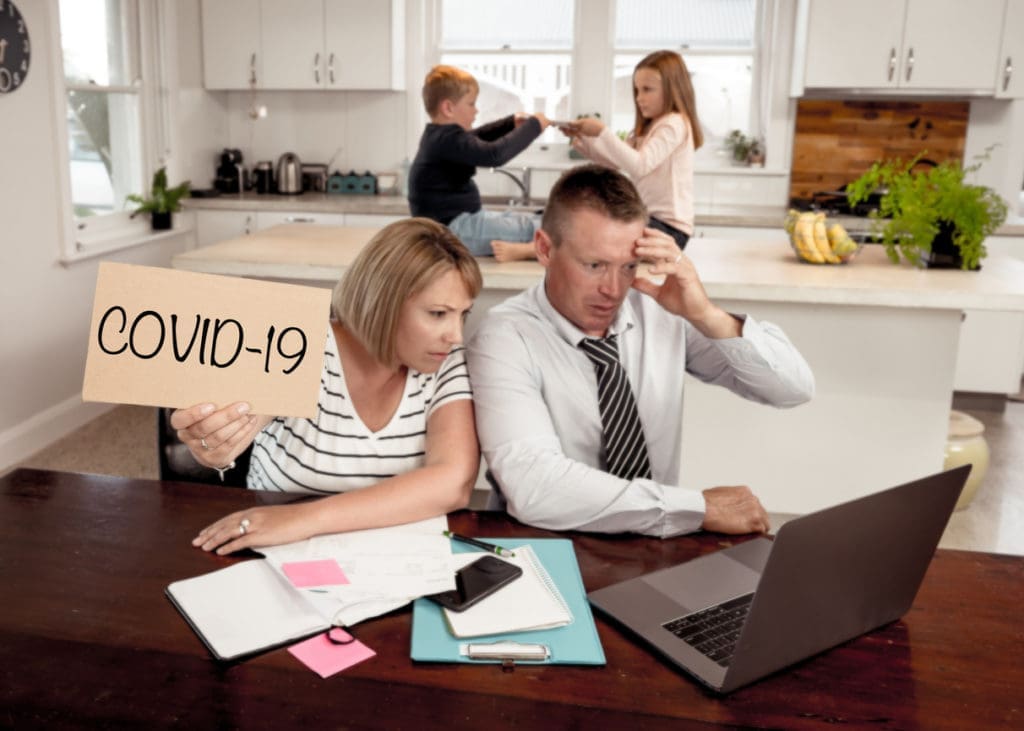Payroll During Coronavirus: How Pandemic Relief Bills Affect You and Your Employees
If you’re wondering about how payroll during coronavirus is going to function for your small business, you’re far from the only one. This global pandemic has altered the existing structures of companies in countless ways, including the new federal mandates requiring small business owners to give their employees COVID-19 sick and family leave. In this post, we’ll discuss what exactly these regulations require of you as an employer, which small businesses are exempt from these new laws, and how this coronavirus PTO will be funded.

How Payroll During Coronavirus Works
The Families First Coronavirus Response Act (FFCRA) was recently signed into law. This act covers a number of new laws and provisions related to COVID-19. One portion of the FFCRA describes the new policies regarding paid time off for small business employees impacted by either COVID-19 itself or by its societal ripple effects.
Emergency Paid Sick Leave Act
The Emergency Paid Sick Leave Act is one component of the FFCRA. This portion of the act mandates that small businesses with under 500 employees provide coronavirus sick paid time off to all employees.
Under this act, both part-time and full-time employees can receive up to two full weeks, or 80 hours total, of COVID-19 sick leave. Regardless of how long they have worked at a particular small business, employees should be paid for the number of hours that they would regularly work within that two week period. This ruling applies to both in-person and remote workers.
Employees are eligible for coronavirus sick leave if they cannot work because they must obey a government coronavirus quarantine or isolation mandate, have been told by a medical provider to self-quarantine, have been officially diagnosed with COVID-19, or are being medically treated for COVID-19. In these cases, the employees must be paid the full amount of their normal pay, with a daily cap of $511 and a total cap of $5,110.
Employees also qualify for COVID-19 paid sick time off if they cannot work because they are caring for someone who has been told by a health care professional to quarantine, caring for someone who has received an official COVID-19 diagnosis, caring for someone who is receiving hospital treatment for COVID-19, caring for a child whose school or care facility is closed because of coronavirus concerns, or undergoing any very similar conditions as laid out jointly by the Secretary of Health and Human Services, the Secretary of the Treasury, and the Secretary of Labor. If one of these scenarios is applicable, then the employees are entitled to two-thirds of their normal pay rate, with a daily maximum of $200 and a total maximum of $2,000.
Emergency Family and Medical Leave Expansion Act
The FFCRA has temporarily modified the existing Family Medical Leave Act (FMLA) with the Emergency Family and Medical Leave Expansion Act. It is now required by law that small businesses with fewer than 500 employees provide paid coronavirus family leave, so long as that employee has been with the business for at least thirty days prior to taking family PTO.
If the employee cannot work, whether physically or remotely, they are allowed twelve weeks of job-protected leave to care for their child if the child’s school or care facility is closed. The first ten days of this twelve week period are not considered paid time off, although the employee may use other accumulated PTO during this time.
Once the ten days are up, full-time employees are to be given two-thirds of their normal daily pay, with a cap at $200 per day and $10,000 for the total COVID-19 family leave. Part-time employees who have been working at the small business for at least six months prior to taking emergency COVID-19 family PTO must be paid for the average number of hours they typically worked; part-time employees who have been with the business for less than six months must be paid for the number of hours the employer expected of them at the time of hiring.
Note that, although employees may qualify for both COVID-19 family and sick leave, there is a cap of twelve weeks total for all coronavirus paid time off.
Is My Business Required to Provide COVID-19 Paid Time Off?
The FFCRA policies regarding COVID-19 PTO apply to all small businesses with under 500 employees. \
The only exemption will be for small business owners who employ fewer than 50 workers and if offering this paid coronavirus leave would jeopardize the business. However, the Labor Department must formally declare these businesses as exempt.
How Will I Pay My Employees For This COVID-19 Paid Time Off?
Many small business owners are struggling just to make ends meet right now, so the announcement that they must provide paid coronavirus sick and family leave to all employees might be financially disconcerting.
It will come as a relief to these small business owners to learn that the cost of this paid leave will be reimbursed by the federal government. This reimbursement will come in the form of a refundable tax credit matching 100% of the COVID-19 PTO wages.
What if you are worried about not having enough cash flow to pay for coronavirus sick and family leave prior to tax season? There’s more good news here: employers are able to receive an advanced tax credit from the federal Treasury.
Let Canal HR Handle Your Coronavirus Payroll
As a small business owner, you have enough to worry about right now without also stressing over payroll changes due to coronavirus mandates.
Luckily, we at Canal HR are here for you during these tough times. Hundreds of businesses already trust us with their payroll duties and employment taxes. We’d be honored to earn your business and trust, too. Contact us today to learn more about how we can help you manage your payroll during coronavirus and beyond.

